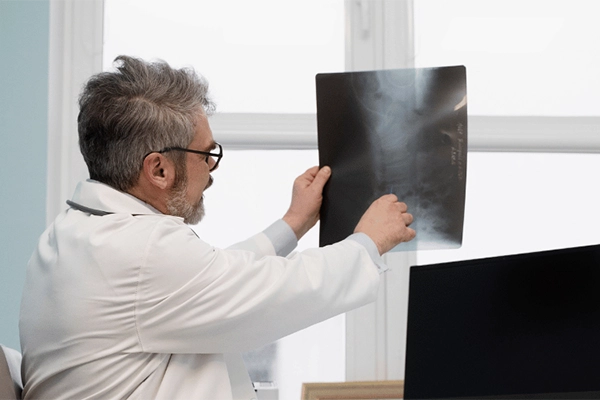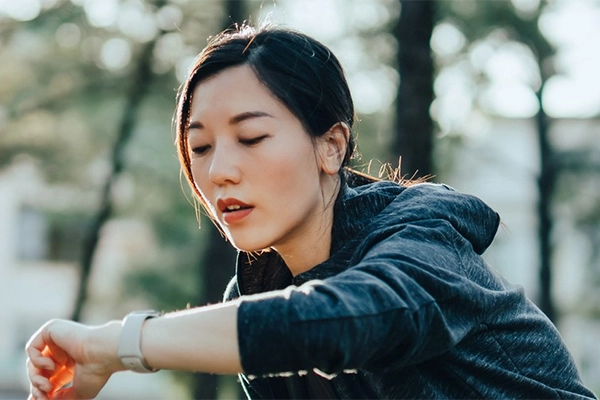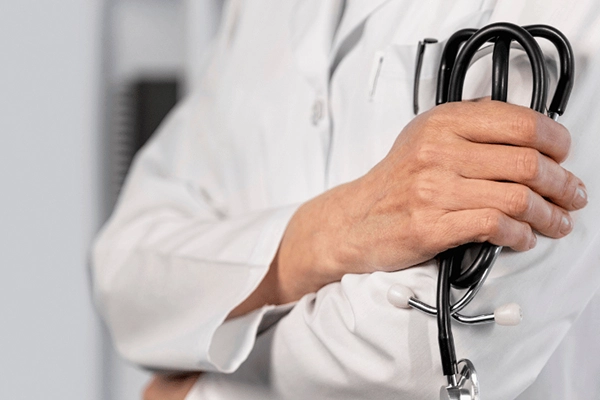Topics
Breast pain, medically known as mastalgia, is a common condition that can be caused by various factors. It can occur in one or both breasts and may range from mild to severe.
There are two types of breast pain:
- Cyclic breast pain: Breast pain related to the menstrual cycle.
- Non-cyclic breast pain: Breast pain not related to the menstrual cycle.
In certain cases, the pain can escalate from minor discomfort to disabling pain. Breast pain is a common concern among women, but it is rarely indicative of breast cancer. Most of the time, breast pain is related to hormonal changes, such as those that occur during menstruation, pregnancy, or menopause, or it can be due to benign breast conditions like fibrocystic changes.
However, if the pain is severe, persistent, or accompanied by other symptoms like a lump, nipple discharge, or changes in breast appearance, it is essential to seek medical evaluation to rule out any underlying issues, including breast cancer.
What causes breast pain?
Some common reasons for breast pain include:
- Hormonal changes: You may feel discomfort or pain in both breasts three to five days before your period starts and the pain will stop once the period starts. This is caused by an increase in oestrogen and progesterone right before your period.
- Pain from the chest wall: The sensation of breast pain may stem from your chest wall which comprises muscles, tissues, and bones surrounding and protecting your heart and lungs. Common causes of chest wall pain are a pulled muscle, inflammation surrounding the ribs, chest wall trauma (getting hit in the chest), and bone fracture.
- Medications: Some medications may lead to breast pain as a side effect, consult your doctor about the medications you are taking and if this is a possibility for you. Some drugs with breast pain as a side effect include hormone therapy, antidepressant and antibiotics.
- Breastfeeding: If you experience pain while breastfeeding, you should consult your doctor. They can provide proper guidance while retaining your milk supply.
- Infection: There is a higher possibility for breastfeeding women to develop a breast infection called mastitis. However, sometimes this may occur to other women too. You may develop a fever and symptoms in one breast, such as pain, redness, and swelling.
- Trauma: Physical trauma like seat belt injuries, accidents involving children or pets affecting the breasts or the chest area in front can cause breast pain. It can also result from intercostal neuralgia triggered by respiratory infections or underlying pleuritic lesions. Moreover, conditions such as gallbladder disease or ischaemic heart disease might manifest as intermittent chest discomfort, sometimes misattributed to breast pain.
- Breast cysts: If you notice a sudden soft lump in your breast, it is likely a cyst. These fluid-filled lumps are generally not harmful and usually resolve without treatment. However, it is crucial to have any breast lump evaluated by a doctor.
- Large pendulous breasts: The stretching of Cooper’s ligaments, which support the breasts, can lead to pain in the breast tissue itself. Additionally, the weight of the breasts can strain the muscles in the neck, back, and shoulders, leading to chronic pain and discomfort in those areas.
- Breast cancer: Women who have newly developed inflammatory breast cancer might experience pain. The breast may be tender, firm, and enlarged. The skin over the breast may feel warm and appear thickened, often resembling the texture of an orange peel, “peau d’orange.”
Should breast pain be treated?
In many cases, mild breast pain related to hormonal changes or normal breast development may not require treatment and can improve on its own. However, if breast pain is persistent, severe, or interfering with daily activities, it is important to seek medical advice.
When should I consult a doctor for breast pain?
You should consider consulting a doctor for breast pain under the following circumstances:
- Persistent or worsening pain.
- New or unexplained breast pain.
- Pain accompanied by other symptoms such as lumps, nipple discharge, redness, swelling, and changes in the appearance of skin over the breast.
- Pain interfering with daily activities.
If you have any concerns or questions about breast pain or changes in your breast tissue, it is always best to seek medical advice from a doctor. Your breast health matters, and early detection and treatment can make all the difference.
Make an appointment at Pantai Hospitals
A dedicated and expert team of obstetrics & gynaecology (O&G) specialists at Pantai Hospitals is available for consultation to provide the best care and assistance.
Get in touch with us to book an appointment today if you have concerns or questions regarding breast pain. We assure you the best possible care tailored to your specific needs.
Pantai Hospitals have been accredited by the Malaysian Society for Quality in Health (MSQH) for its commitment to patient safety and service quality.












